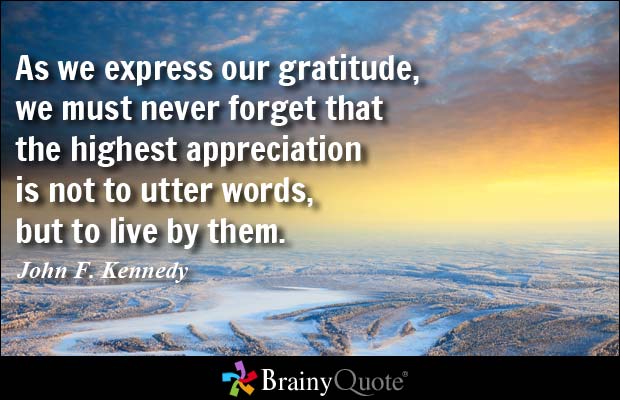
Have you ever wondered why coaching has exploded worldwide over the past 20 years?
There are plenty of theories about the rise of coaching. For instance, I often point out to my students that coaching emerged just as positive psychology research skyrocketed and discoveries about neuroplasticity became known, because great coaching used ideas from both, particularly ideas about human potential.
Others have suggested that a century of psychotherapy got people healthy enough to want to, and be able to, continue growing so coaching emerged to help with that. Still others draw wisdom from the great Twentieth Century psychologist, Abraham Maslow, among others, and point out that people are evolving, which is different from healing, and they are ready to self-actualize, because their survival needs have been met.
These theories have merit, but I offer a radically different perspective that may matter most in coaching's origins and even more so in its future.
You see, coaching began developing into a profession during yet another explosion, that of personal computers, software, and the World Wide Web. We all know those technological advances changed our lives by making jobs that previously were tedious, time-consuming, expensive, difficult, or even impossible, easy. Plus, they connected us to other people, worldwide. But just as every solution unveils new problems, computers, software, the internet, a.k.a. technology, are releasing an overwhelming number of problems and pressures.
One such problem/opportunity is the constant acceleration of technological innovation, a.k.a. hypercomplexity.
The pace of expansion is overwhelming. Some of us are taking it in stride, but many are struggling. Let me give an example of positive adjustment:
- In the 1970s, I was exposed to computers, software, and eventually the internet, via school and work.
- But as a self-described techno-phobe, it wasn't until 1999 that I decided to buy an internet-ready laptop for home use and began surfing and emailing, like everybody else.
- Within two years, in 2001, I joined a web-based coach training school and became a coach.
- By 2002, I had a listing in an online coach directory. I'd gone from consuming the online economy to participating.
- In 2003, I launched my first web site.
- In 2004, I began launching additional web sites.
- In 2005, I launched my first blog and began learning to make online graphics. I also moved my business from one part of the country to another, but kept all my coaching clients, because we were already connecting and coaching via technology.
- In 2006, I spent months running my business, while traveling, with just a cell phone and a laptop, as my office. This is also when I started using social media in earnest.
- In 2007, I launched an online coach-training school. I also learned the meaning of the phrase, "cloud computing" and realized I'd been doing it for years.
- In 2008, I switched from coach training via teleclasses, to teaching via live interactive webinars, because the technology was finally better than telephone conferencing.
- In 2009, I decided to stop dabbling and master online content marketing and my school started taking off.
In one decade, starting with the purchase of that first laptop and joining AOL, I completely changed my life and work. Today, SchoolofCoachingMastery.com is one of the most competitive coaching web sites, worldwide, and the blog you're reading gets more than 20,000 views every month. All this, from a self-described techno-phobe.
It was possible, because technology simplified what was formerly difficult. Granted, to fully adapt and thrive in this rapidly-progressing technological environment, one must be open to the new, but as someone who did not adjust easily to technology, I needed more than just internet access in order to succeed.
Something else made it possible.
Best-selling author, Tom Friedman, says software makes complexity invisible by designing algorithms that take hundreds of complex and difficult steps, while you make a few taps or swipes. By making complexity invisible, we're able to do far more than imaginable in 1999. But technology is also helping us create a world that is too complex for us to comprehend and that world transforms again and again before we can adjust to it. That is awesome, but it can be unbearably hard for us.
That's where coaching comes in. Coaching does for your life what software, apps, and other techno devices do for your productivity, only it turns "making complexity invisible" upside down.
Coaching reveals simplicity.
Remember, hypercomplexity means we're living in an incomprehensively intricate world that is ever accelerating. Anything that simplifies that in a meaningful way, without detracting from what matters, is a Godsend. Hence, the rise of coaching.
Coaching exists, in large part, because the internet created a new need.
Humans have an inborn need for simplicity. Or at least, they need complexity to be simplified enough that they can adjust to it. Previous generations lived in a slower world and may have experienced massive change once per generation. Our nervous systems can handle that rate. Now massive change comes about once a decade and it's starting to accelerate ever faster. Soon it'll be once a year, then once a month, once a week, once a day...But coaching reveals simplicity.
Yes, positive psychology and neuroplasticity provide us with amazing new tools. And yes, people with good mental health are poised to take best advantage of coaching. And yes definitely, people are evolving, especially those whose survival needs are well met and who have access to education, diversity, affluence, and of course, technology.
But even evolved people are having trouble keeping up.
And less evolved people, who may be poorer, more isolated, less educated, and have fewer opportunities; are falling behind the fastest. Many are virtually locked out of the job market. There's a big coaching opportunity there.
We used to say people needed coaching most when they were in transition, meaning transitioning from school to job, changing jobs, training for new jobs, starting businesses, living in new places, getting married, having kids, getting divorced, retiring. We now know that people will be changing professions every few years, that the one career constant will always be training for the next opportunity, that economies will take turns booming and many workers will travel around the world to stay employed. Meanwhile, changes in climate will increase social upheaval, spark wars, create famines, and will cause massive human migrations.
In the future, everyone will be transitioning all the time.
Being coached helped me make several transitions within one decade. In the future, people may need coaching constantly, because most humans can't handle that rate of change, but coaching can put people into the flow where learning becomes second nature, where wealth is less about what they have than what they can produce, where mental algorithms, like unique values, can help them think faster and make wise choices faster. That sense of flow is something our ancient ancestors had, but which we've lost during our "modern" period. What's needed for the future is a level of evolution that knits the ancient with the modern and post-modern. It used to only be available to elites, but now is available to anyone open enough to learn.
Coaching facilitates fast learning and smooth adjustment.
In the hypercomplex world of the future, demand for great coaching will be higher than ever. And though artificial intelligence can ask the questions, nothing but a human can bond with and believe in a coaching client. Two critical elements of effective coaching.
Simplicity in a hypercomplex world and someone who cares about and believes in us. That's what everyone needs, always.
Would you like to learn more about becoming a coach? Take a course and get certified:



















